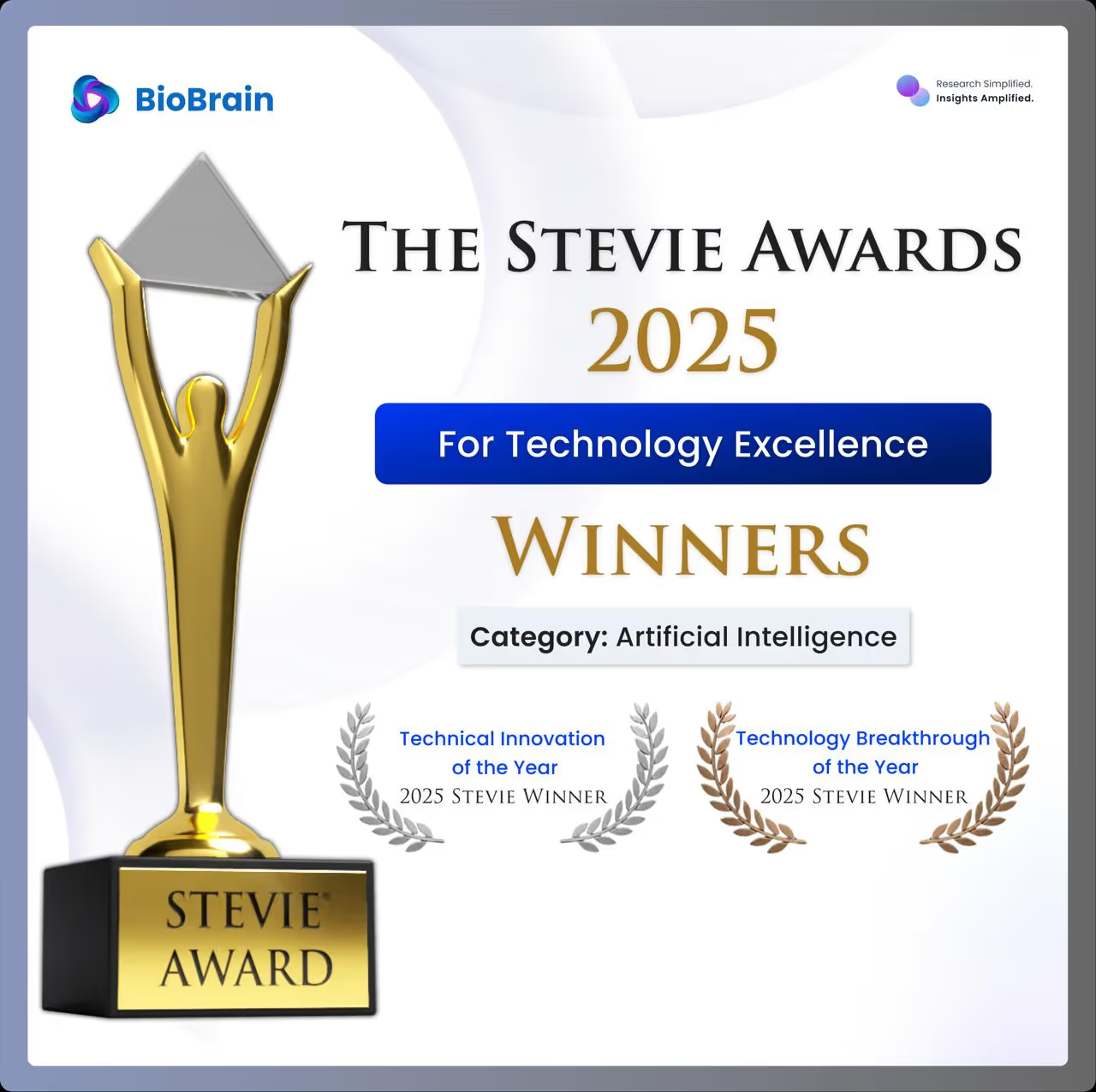The integration of Artificial Intelligence (AI) and automation in market research is rapidly transforming the industry, enabling organizations to gather insights more efficiently and accurately than ever before. As the market research sector continues to grow, with an estimated value exceeding $24 billion in 2024, businesses are increasingly relying on AI-driven solutions to enhance their decision-making processes and gain a competitive edge. AI not only streamlines data collection and analysis but also provides predictive analytics that helps organizations anticipate consumer behavior and market trends.
However, the implementation of AI and automation in market research is not without its challenges. Organizations often face concerns regarding data quality, as ensuring accurate and reliable insights is paramount. Additionally, the integration with existing systems can be complex, particularly when aligning new technologies with established platforms like Qualtrics or Decipher.
Scalability is another critical factor, as businesses need solutions that can adapt from small-scale studies to enterprise-wide research initiatives. Ethical considerations surrounding client data management also raise questions about privacy and compliance. Furthermore, the complexity of systems can hinder user adoption, while maintaining research integrity is essential to ensure that findings are both valid and actionable.
BioBrain addresses these concerns through its Agile Market Research Operations (MROps) framework. By leveraging advanced technologies and a user-friendly platform, BioBrain enhances data quality, facilitates seamless integration with existing systems, supports scalability for various project sizes, ensures ethical handling of client data, simplifies complexity with an intuitive design, and upholds research integrity through expert oversight.
This comprehensive approach empowers organizations to harness the full potential of AI and automation in their market research efforts, leading to better outcomes and informed decision-making.

Ensuring Data Quality
In market research, data quality refers to the accuracy, reliability, and relevance of the data collected. High-quality data is crucial as it directly impacts the validity of insights derived from research efforts. Poor data quality can lead to misguided decisions, misinterpretations, and ultimately, failed business strategies. Therefore, ensuring that data is clean, accurate, and representative of the target audience is paramount for effective market analysis and decision-making.
BioBrain’s Approach to Data Quality
BioBrain employs a robust suite of data quality measures designed to ensure the accuracy and reliability of insights generated through its platform. One of the key features is its automated validation processes, which perform real-time checks on incoming data. This automation helps identify and eliminate invalid responses promptly, thereby maintaining the integrity of the dataset.
Additionally, BioBrain utilizes real-time analytics to monitor research responses as they are collected. By analyzing data on-the-fly, the platform can provide researchers with immediate feedback on data quality, enabling them to make necessary adjustments before finalizing their findings. This proactive approach ensures that only high-quality data is used for analysis, significantly enhancing the reliability of insights.
Proprietary Quality Engine
At the heart of BioBrain’s commitment to data quality is its Proprietary Quality Engine. This advanced system continuously monitors and performs quality checks throughout the research process. The Quality Engine employs sophisticated algorithms that conduct on-the-fly data cleaning and validation, ensuring that every response meets stringent quality standards.
By leveraging this proprietary technology, BioBrain enhances data quality through rigorous sampling techniques and ongoing monitoring. This ensures that researchers can trust their findings and make informed decisions based on accurate and reliable data. With BioBrain’s focus on maintaining high-quality standards, organizations can confidently navigate their market research journeys and derive actionable insights that drive strategic decision-making.

Seamless Integration with Existing Systems
Integration Challenges
Integrating new technologies with existing systems poses several challenges for organizations, particularly in the realm of market research. One of the primary hurdles is compatibility issues, where new tools may not seamlessly align with legacy systems, leading to data synchronization problems and operational inefficiencies.
Organizations often struggle with data integrity, as fragmented data across multiple platforms can result in inconsistent insights and hinder effective decision-making.
Additionally, the lack of interoperability between different marketing technologies complicates the integration process. Each tool typically comes with its own set of features, data structures, and APIs, making it difficult to share data and insights across platforms.
This can lead to manual data transfers, increasing the risk of errors and consuming valuable time. Furthermore, organizations may face resistance from employees who are accustomed to existing workflows, making change management a critical aspect of successful integration.
BioBrain’s Solutions
BioBrain effectively addresses these integration challenges through its Agile MROps framework, offering seamless compatibility with established platforms such as Qualtrics and Decipher. By ensuring that its technology integrates smoothly with these widely used systems, BioBrain enables organizations to leverage their existing investments while enhancing their research capabilities.
In addition to platform integrations, BioBrain provides robust support for supplier integration, ensuring that external data sources can be easily incorporated into research workflows.
By focusing on these solutions, BioBrain not only simplifies the integration process but also enhances overall operational efficiency.
This seamless integration ultimately empowers businesses to harness the full potential of their market research efforts while maintaining a competitive edge in an increasingly complex landscape.
Scalability from Small to Enterprise-Wide Studies

Scalability is a critical factor for organizations conducting various research projects, as it enables them to grow and adapt to changing market demands without being constrained by their existing resources or infrastructure.
In the fast-paced world of market research, the ability to scale operations efficiently allows organizations to manage everything from small-scale studies to large enterprise-wide initiatives seamlessly. This adaptability is essential for maintaining operational efficiency, meeting client expectations, and capitalizing on new opportunities as they arise.
BioBrain’s Scalability Features
BioBrain supports scalability through its Agile Market Research Operations (MROps) framework, which is designed to accommodate the diverse needs of organizations conducting research at different scales. The platform allows users to efficiently manage a wide range of projects, from small-scale surveys targeting niche audiences to comprehensive enterprise-wide studies that require extensive data collection and analysis.
One of the key features that facilitate scalability in BioBrain is its cloud-based infrastructure, which provides the flexibility to adjust resources based on project demands. This means that as research needs grow, BioBrain can easily scale up its operations without requiring significant investments in additional hardware or software.
Furthermore, BioBrain's platform is designed with user-friendly interfaces and automated processes that simplify the management of research projects. This intuitive design enables teams to quickly set up studies, monitor progress, and analyze results without extensive training or technical expertise.
As a result, organizations can focus on deriving actionable insights rather than getting bogged down by complex systems.

Simplifying Complexity with an Intuitive Platform
Complexity in Research Systems
Many organizations struggle with complex research systems that hinder productivity and efficiency. These systems often involve multiple tools and platforms that require extensive training and expertise to navigate, leading to frustration among users.
The intricacies of managing data, coordinating research efforts, and analyzing results can create bottlenecks that slow down the research process. As a result, teams may find it challenging to derive actionable insights in a timely manner, ultimately impacting their ability to make informed decisions.
User-Friendly Design
BioBrain addresses these challenges with its intuitive platform design, which simplifies the user experience and enables users to navigate the system easily without extensive training. The platform is built with user-centric features that prioritize ease of use, allowing researchers to focus on their core tasks rather than grappling with complicated interfaces or workflows.
Key aspects of BioBrain’s user-friendly design include:
- Streamlined Navigation: The platform offers a clear and organized layout that allows users to access various functionalities quickly, reducing the time spent searching for tools or information.
- Automated Processes: By automating repetitive tasks such as data collection and validation, BioBrain minimizes the complexity involved in managing research projects. This automation not only enhances efficiency but also reduces the likelihood of human error.
- Interactive Dashboards: BioBrain provides interactive dashboards that visualize data in real time, making it easier for users to interpret results and track progress at a glance. This feature empowers researchers to make informed decisions based on current insights without needing advanced analytical skills.
By simplifying the complexities often associated with market research systems, BioBrain's intuitive platform enhances productivity and allows organizations to leverage their research capabilities more effectively. Users can quickly adapt to the system, enabling them to focus on deriving valuable insights that drive strategic decision-making.













